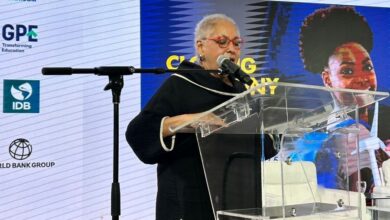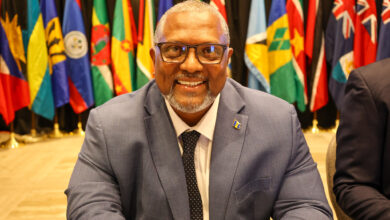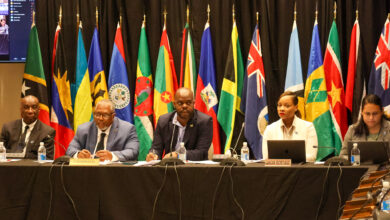(CARICOM Secretariat, Turkeyen, Greater Georgetown, Guyana) The just-concluded Special Meeting of the Council for Trade and Economic Development (COTED) on Energy has broken new ground with the establishment of regional targets for the contribution of renewable energy, such as, solar power, wind power, hydropower, geothermal energy, bio-energy, to the total electricity generation in the Caribbean Community (CARICOM).
CARICOM Ministers with responsibility for Energy, who met last week in Trinidad and Tobago, approved the initial regional targets for the contribution of renewable energy to electricity generation at the national and Community levels. Among the initial targets that have been set are: 20%, 28% and 47% for years 2017, 2022 and 2027 respectively, for the contribution of renewable energy to total electricity generation in the Community.
These initial targets were established as part of the broader Caribbean Sustainable Energy Roadmap and Strategy (C-SERMS) which is being developed to provide an implementation framework for the sustainable energy dimension of the CARICOM Energy Policy which Energy Ministers approved at the Meeting on 1 March. The Energy Policy is the lynchpin of the Region’s efforts to increase its energy security, sustainability and affordability. Renewable energy, natural gas and energy efficiency will play important roles in this endeavor.
C-SERMS is intended to provide a more focused and sustained approach to the Region’s drive to significantly increase the contribution of renewable energy and to increase the level of efficiency of energy use across CARICOM. CSERMS is being developed in phases with the first phase which began in 2011 and funded by the Inter-American Development Bank (IDB) through a Technical Cooperation Agreement. Phase One concludes this year.
The second phase begins in 2013 with support from the Government of Germany through the German Agency for International Cooperation (GIZ) and other agencies.
Renewable energy and energy efficiency targets for the total energy system including transportation sector will also be developed. C-SERMS is being pursued against the background of the main energy sector challenges of the Community which are rooted in the high cost of energy and the overdependence on expensive imported fossil fuels. It is estimated that more than 90% of the Region’s commercial energy consumption comes from petroleum products. The Region’s total energy bill exceeded US$14B in 2008.
The mandate to develop C-SERMS was issued by the Heads of Government of CARICOM at their Twentieth Intersessional Meeting held in Belize in 2009.





